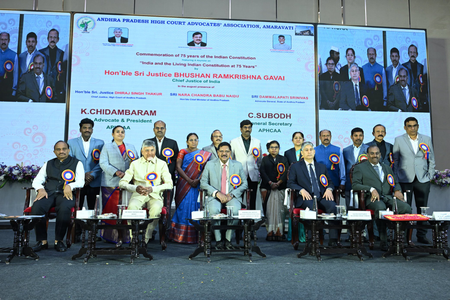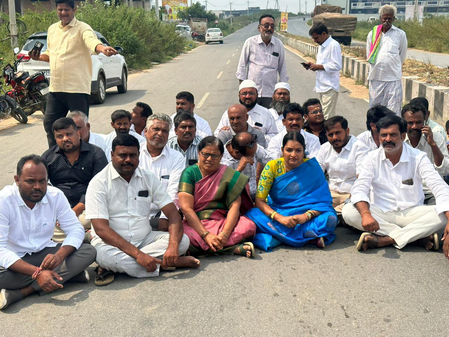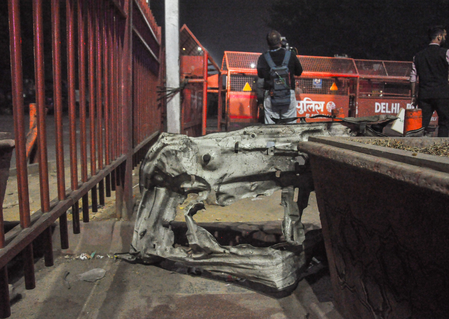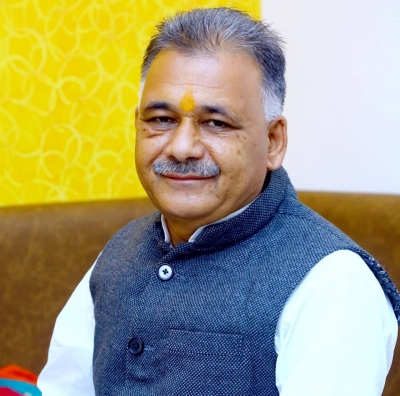
Amaravati, Nov 16 (IANS) Chief Justice of India BR Gavai on Sunday stated that he still holds the view that the creamy layer should be excluded from reservations to the Scheduled Castes.
He opined that the child of an IAS officer cannot be equated with the offspring of a poor agricultural labourer when it comes to reservations.
He was delivering a keynote address on ‘India and the Living Indian Constitution at 75 Years’ at a programme organised by Andhra Pradesh High Court Advocates Association on the 75th anniversary of the Indian Constitution.
The Chief Justice referred to last year’s judgment by a bench of seven judges on the sub-classification of Scheduled Castes (SCs).
“Last year, we sat in seven judge combination to consider the issue with regard to the issue of sub-classification. Out of seven, six of us took the view that a sub-classification was permissible if a state government finds that even among the Scheduled Castes a certain sections of Scheduled Castes are not adequately represented and if it is found that only a particular section in SCs have taken the benefits of the reservation the state cannot be peculated of its right to provide special treatment to those who are unrepresented,” he said.
“I also went further and took a view that the concept of creamy layer, as has been found in the judgment of Indra Sawhney in so far as the other Backward Classes are concerned, should also be made applicable to the Scheduled Castes. Though my judgment has been widely criticised on that issue but I still hold that judges are not normally supposed to justify their judgments. I still have a week to go,” said Justice Gavai, who is scheduled to leave his office on November 23.
“But if a person who is an IAS officer and he becomes chief secretary and his son gets the best of education in a city like Hyderabad or Bangalore, could a child of a poor agricultural labourer studying in the village… though both belonging to the Scheduled Castes, could be equated. My answer was no. It denies equality of opportunity. Three of the learned judges concurred with my view. Therefore, the concept of equality has to be ensured. Equality should not be only a paper equality but a real equality,” he said.
Quoting Dr BR Ambedkar, he said equality without liberty will take away the incentive of a human being to excel in his life, and liberty alone would lead to supremacy of the powerful over the weaker. The trinity of equality, liberty and fraternity would be necessary to take the country forward in achieving social and economic justice.
Justice Gavai said that after becoming the 52nd CJI, his first function was at his native place, Amravati in Maharashtra, and now, when he is set to end his journey as CJI in a couple of days, the last function that he attended happened to be again at Amaravati of Andhra Pradesh.
“Coming from a humble background from a school, predominantly in a semi-slum area in Amravati, a municipal school, I could reach the highest office in the judiciary and contribute in my humble way to nation building only because of the Constitution of India,” BR Gavai said.
He said it is because of the Constitution, India had two Presidents from the Scheduled Castes, and also the incumbent is a woman from the Scheduled Tribe.
According to him, Dr Ambedkar’s addresses during the presentation of the draft Constitution in the Constituent Assembly are the most important speeches which every student of law should read.
Asserting that the Indian Constitution is not static, Justice Gavai said Dr BR Ambedkar always considered that it has to be evolving, organic, and a state-of-the-art living document, as Article 368 provides for the amendment of the Constitution.
“On one hand, Dr Ambedkar was criticised for the powers to amend the Constitution being too liberal, and on the other hand, it was criticised that some of the amendments require ratification by half of the states, and two-thirds majority of the parliament, and it was difficult to achieve an amendment in this manner,” he said.
He said that while amendments necessary for addressing socio-economic challenges are easy, wherever the foundations of the Constitution, independence of the judiciary, federal structure or other important aspects of the Constitution are involved, powers to amend the Constitution are not simple.
–IANS
ms/uk




